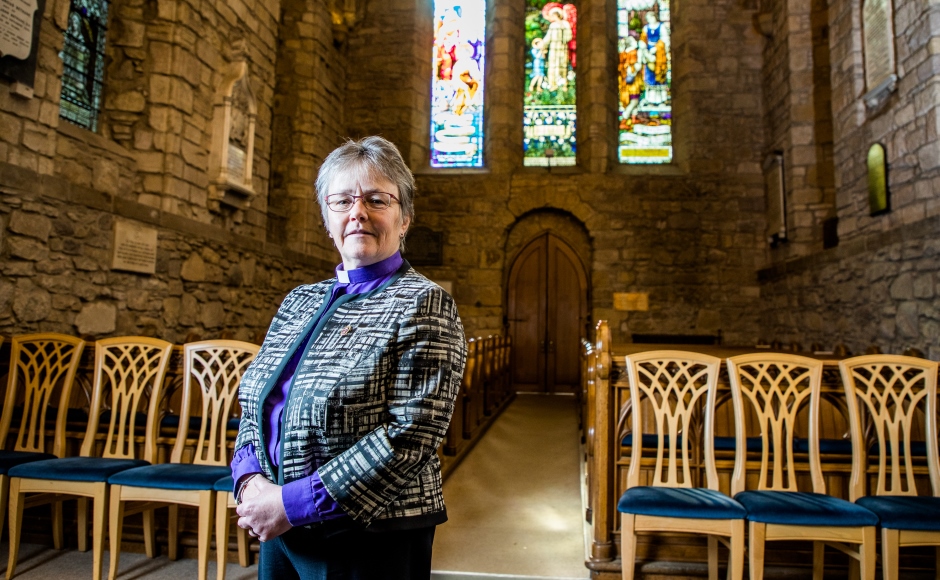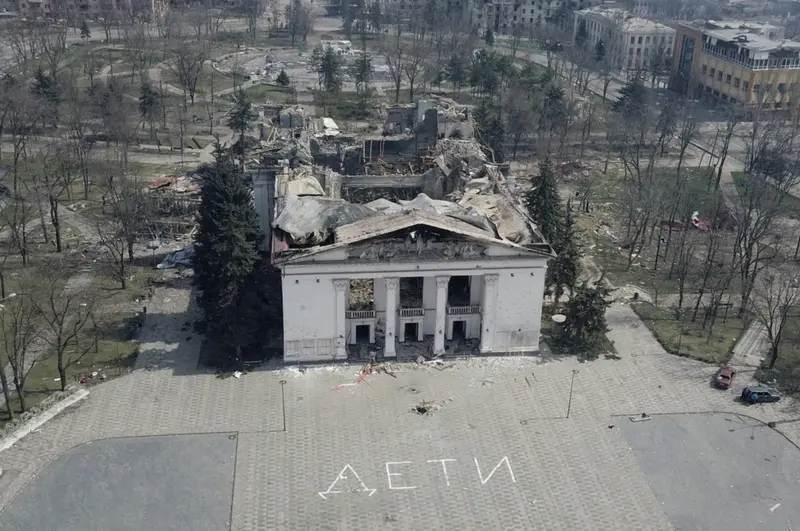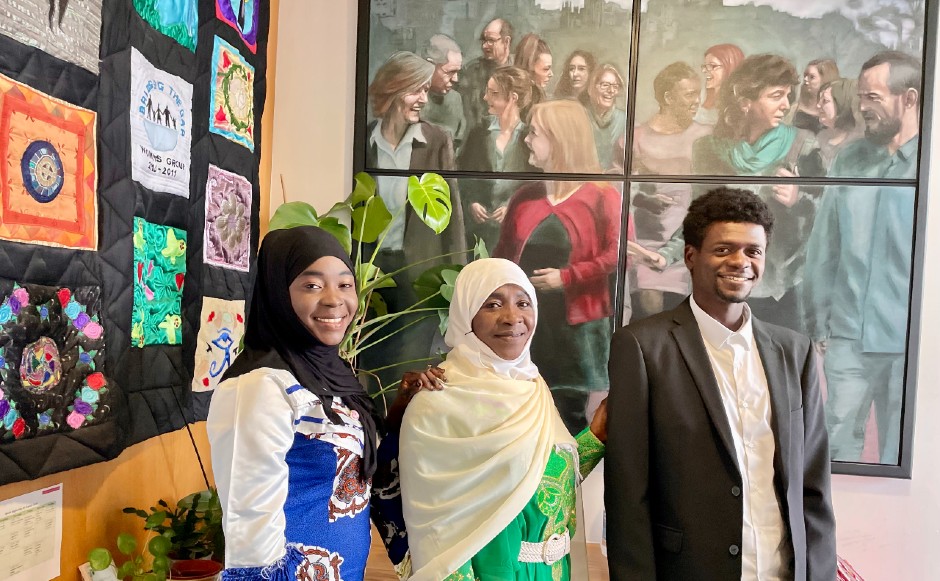Moderator signs Christmas statement on refugees
Published on 4 December 2018
Rt Rev Susan Brown has joined more than 30 Church leaders from across Europe in signing a Christmas statement highlighting the plight of refugees and urging all nations and people to celebrate Christ's birth by working for a more welcoming and inclusive Europe.
Created by the Churches' Commission for Migrants in Europe in cooperation with the Conference of European Churches the statement recognises the suffering of more than 70 million people across the world who have been forced to flee their homes in search of sanctuary and livelihood. More than half of them are children.

Christmas Statement
In the spirit of Christmas, we ask you to work and pray for a welcoming and inclusive community in Europe.
As Christians prepare to celebrate the birth of Christ, they wait in hope and anticipation, remembering Isaiah's prophecy: "The people walking in darkness have seen a great light". (Isaiah 9.2)
We call on the nations and the people of Europe, on the political leaders and on our Churches: Don't allow us to become indifferent to the suffering of others.
Let us rather cherish the dignity of those who need our help and recognise that welcoming the stranger is part of our Christian and European heritage. May we be courageous and confident in the Son of God, the Light of the World, whose birth we celebrate.
Christ will show us the way for a future life together.
Today's world continues to experience the darkness of persecution, conflict and war. According to the UN almost 70 million people have been forced to flee their homes in search of sanctuary and livelihood. More than half of them are children.
The UN High Commissioner for Refugees states: "No one becomes a refugee by choice; but the rest of us can have a choice about how we help." As Christians we are guided by biblical teaching and our following of Christ. In this season of preparation for Christmas we are reminded of our responsibility, along with God's promise of light and life for this world.
Jesus became human
Christmas is the celebration of Jesus incarnate. For Christians the Incarnation is an expression of God's unlimited love for humanity, the babe born in a manger was to be good news of joy for all people (Luke 2.10). Just as every person is created in the image of God (Genesis 1.27), so Jesus becoming human affirms the dignity of all people. No individual or group of people are ‘problems' to be dealt with but they are deserving of dignity as people loved by God. We all share a common humanity devoid of distinction between strangers and inhabitants.
Jesus the refugee
He took refuge in Egypt as a child when Mary and Joseph fled Herod's threat to kill him. Jesus also experienced life under Roman occupation so knew measures that deprived people of their freedom and trampled upon their dignity. Jesus is born homeless and experiences tyranny and suffering. He identifies with the refugee and the oppressed and calls on us to similarly identify compassionately with the vulnerable.
Jesus the stranger
Jesus tells us that our response to the stranger is a response to Jesus himself (Matthew 25.40). When recognising Christ in the stranger's guise we begin to encounter the divine in the other. Not only do we then move from a situation of ‘us' and ‘them' to a new relationship of ‘we', there is blessing in the encounter and we become human together.
With deep concern we observe current developments in Europe's response to new arrivals of people. Based on the biblical message and theological reflection and mindful of the statements made almost 20 years ago at the European Summit in Tampere 1999, we state that:
- It is unacceptable that policies of "managing migration" lead to situations where the massive loss of human life on the way to Europe has become normal and exploitation and violence an everyday reality. We need meaningful safe passages (e.g. resettlement, humanitarian visa, realistic labour migration policies) and search and rescue on the way to Europe.
- We reaffirm the notions of the Tampere summit, in particular the "absolute respect of the right to seek asylum" and "the full and inclusive application of the Geneva Convention" as guiding principles of asylum policy today. This would include effective access to a procedure for asylum seeking persons irrespective of how and through where they came to Europe.
- Protection in the region of origin and improvement of conditions in countries of origin remain important, so that people are not forced to move. However, as long as reasons for migration exist, Europe should accept its obligation to welcome and protect - as one of the richest and most developed regions of the globe; instead of coercing third countries into stopping migration into Europe.
- Solidarity should be the guiding aspect when governing migration and particularly refugee reception. Solidarity means that the stronger shoulders accept more responsibility than the weaker ones, but also that everyone contributes what they can.
- We renounce the notion that a welcome to newly arrived is at the detriment of those presently living in Europe. Policies should address the specific needs of new arrivals in Europe and encourage their potential to contribute, while at the same time honouring the traditions and needs of inhabitants alike.
- Discussions on migration and refugees should be characterised by dignity, respect, and where possible compassion. Spreading of inaccurate, unverifiable and divisive messages only makes the challenge of living together more difficult.
- Conflicts will inevitably arise where people of diverse ethnic and religious backgrounds are living together, particularly under rapidly changing circumstances. Living together in diversity can be both enriching and challenging. We ask for a spirit of tolerance and goodwill and a commitment to constructive engagement.
We commit to more fervently articulating and working towards our vision of an inclusive and participatory society – for newly arrived and all inhabitants.


